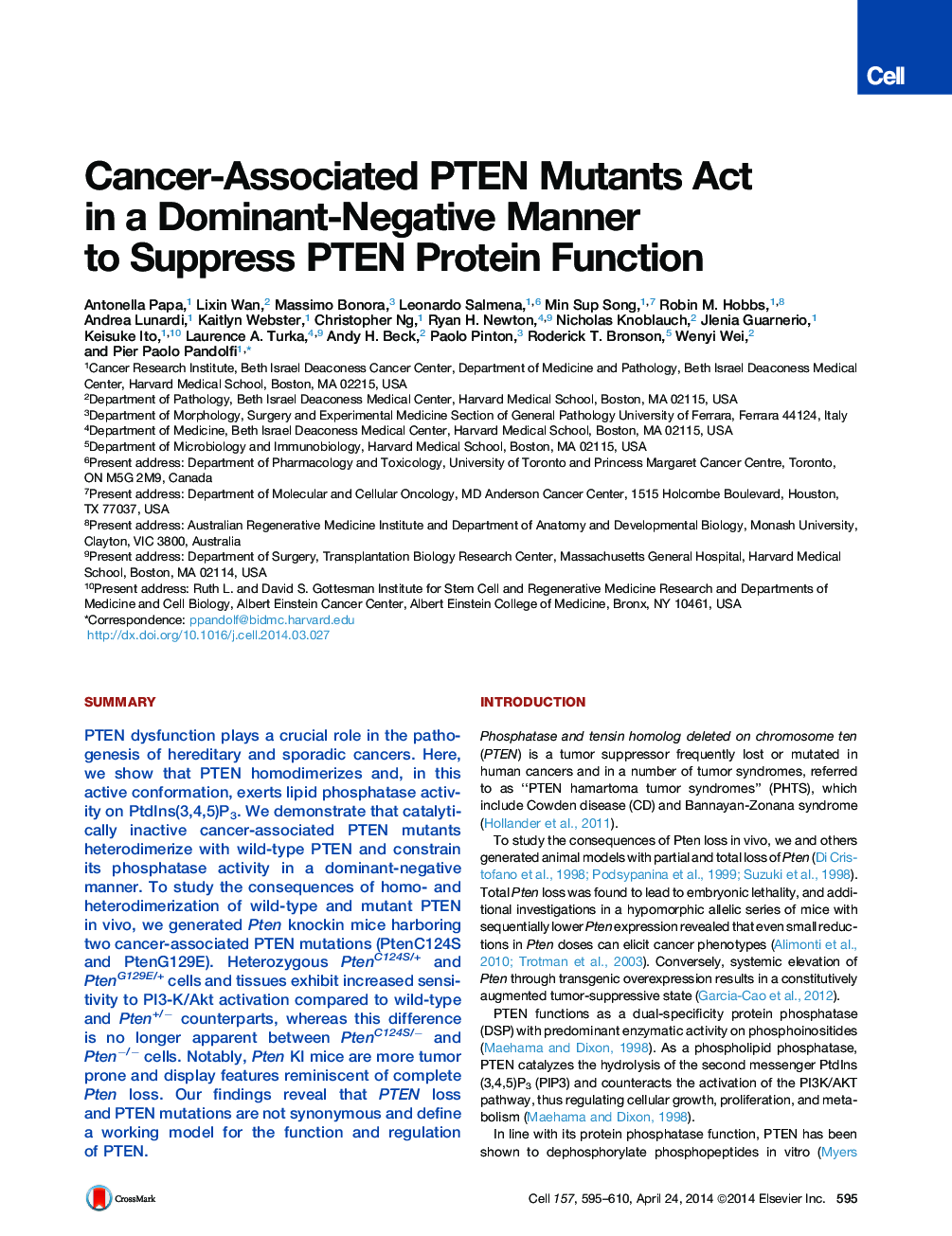| کد مقاله | کد نشریه | سال انتشار | مقاله انگلیسی | نسخه تمام متن |
|---|---|---|---|---|
| 2035537 | 1072193 | 2014 | 16 صفحه PDF | دانلود رایگان |

• PTEN exists in an active, unphosphorylated dimeric conformation
• PTEN missense mutations exert dominant-negative effects over the wild-type protein
• Pten mutations elicit Akt hyperactivation and augmented tumorigenesis in the mouse
• Mutant PTEN associates with increased AKT phosphorylation in human cancer
SummaryPTEN dysfunction plays a crucial role in the pathogenesis of hereditary and sporadic cancers. Here, we show that PTEN homodimerizes and, in this active conformation, exerts lipid phosphatase activity on PtdIns(3,4,5)P3. We demonstrate that catalytically inactive cancer-associated PTEN mutants heterodimerize with wild-type PTEN and constrain its phosphatase activity in a dominant-negative manner. To study the consequences of homo- and heterodimerization of wild-type and mutant PTEN in vivo, we generated Pten knockin mice harboring two cancer-associated PTEN mutations (PtenC124S and PtenG129E). Heterozygous PtenC124S/+ and PtenG129E/+ cells and tissues exhibit increased sensitivity to PI3-K/Akt activation compared to wild-type and Pten+/− counterparts, whereas this difference is no longer apparent between PtenC124S/− and Pten−/− cells. Notably, Pten KI mice are more tumor prone and display features reminiscent of complete Pten loss. Our findings reveal that PTEN loss and PTEN mutations are not synonymous and define a working model for the function and regulation of PTEN.
Graphical AbstractFigure optionsDownload high-quality image (172 K)Download as PowerPoint slide
Journal: - Volume 157, Issue 3, 24 April 2014, Pages 595–610